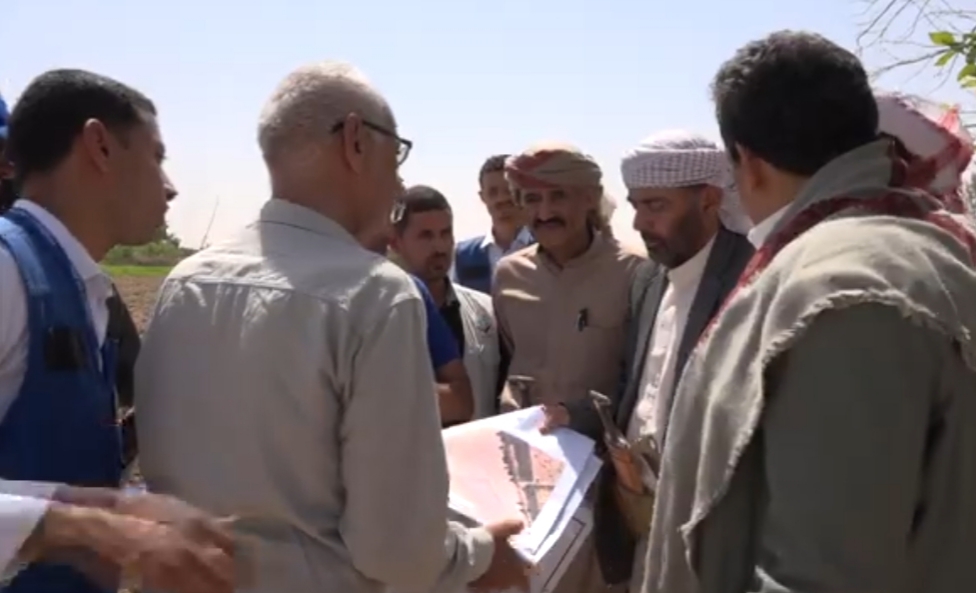


Barran Press
Marib Governorate's Deputy Governor for Administrative Affairs, Abdullah al-Bakri, along with the Director General of the Wadi District, Saleh bin Jaradan, inaugurated two agricultural development projects on in the Wadi District. The projects, funded by the International Organization for Migration (IOM) at a total cost of $1.1 million, aim to improve irrigation infrastructure and reduce water loss in farms.
The first project, costing $800,000, focuses on rehabilitating three irrigation canals within the Marib Dam system, totaling 7.8 kilometers. These canals, namely Hadhn, Al-Dukhan, and Al-Aliyan, will benefit over 65,300 farmers. The project also includes the construction of ten reservoirs in the district to collect water from the Marib Dam and replenish groundwater reserves. Each reservoir will cover an area of 4,800 square meters.
The second project, costing $300,000, aims to reduce irrigation water loss in 300 farms by installing 150-meter-long pipes to transport water from well pumps directly to the farms. This will minimize water waste and improve irrigation efficiency. The project is expected to create 300 jobs through a cash-for-work program.
Al-Bakri emphasized the importance of the agricultural sector in Marib, which has become a major food basket for Yemen. He highlighted its role in contributing to development, reconstruction, and addressing the food crisis. The sector also provides numerous direct and indirect employment opportunities, contributing to improving livelihoods and alleviating the humanitarian and living crisis for internally displaced persons (IDPs) and host communities. Marib currently hosts over 62% of Yemen's IDPs, facing challenging humanitarian conditions.
Al-Bakri urged farmers to maintain the irrigation canals and groundwater reservoirs, ensuring their long-term sustainability. He encouraged them to conserve water, use it efficiently, and coordinate irrigation activities to maximize their yields.